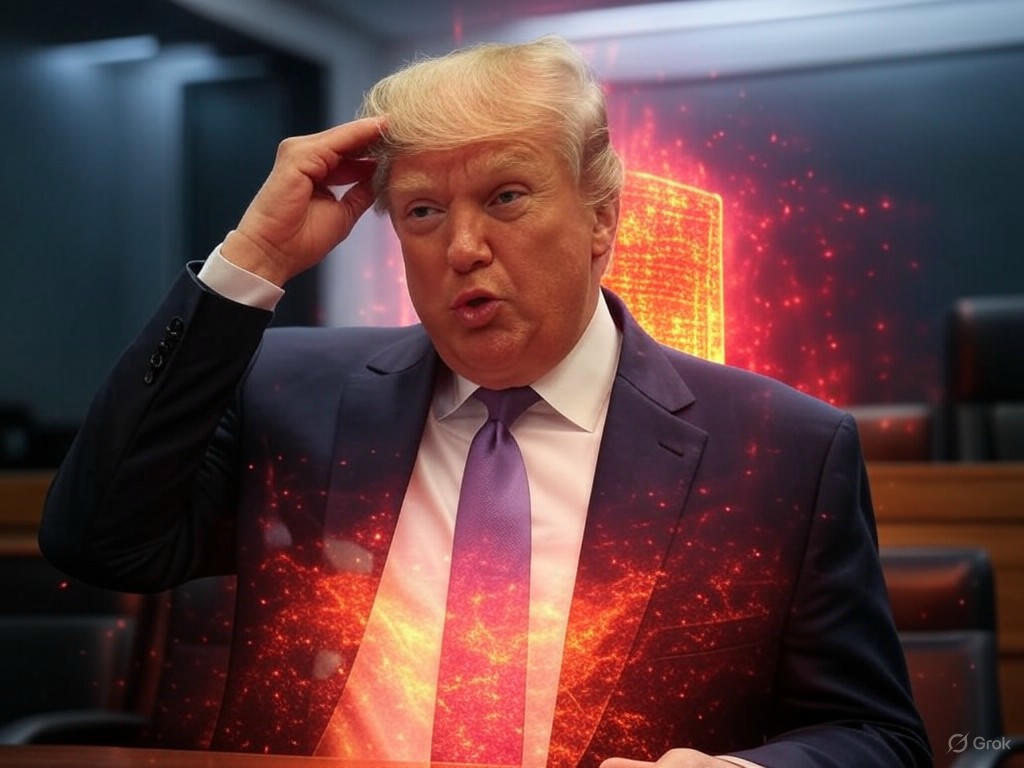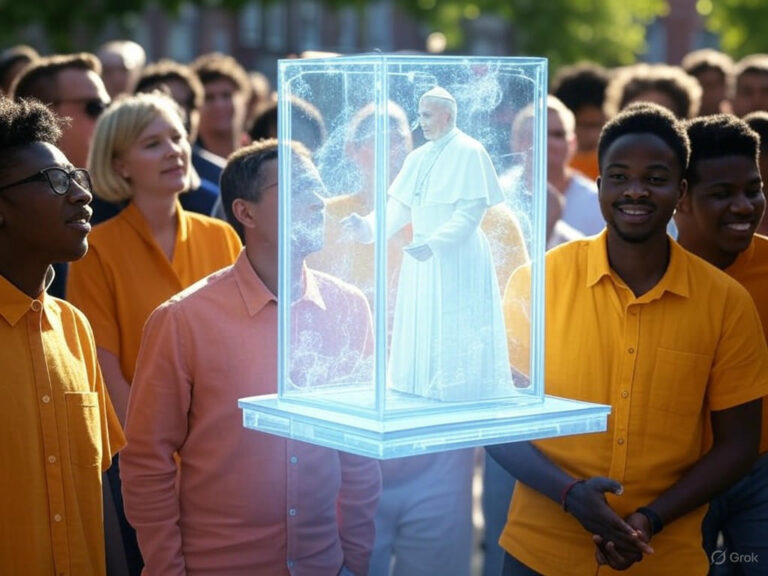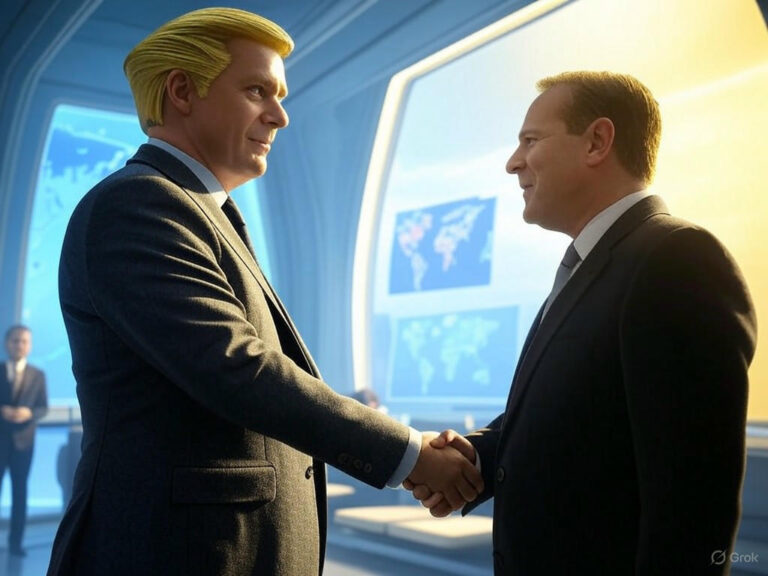
Trump’s Constitution Confusion: Does President Need to Uphold It?
Introduction
Have you ever wondered if the leader of the free world must always follow the rules that define our democracy? In today’s heated political landscape, ‘Trump Constitution’ discussions are front and center, especially after former President Donald Trump’s recent remarks. This article dives into whether U.S. presidents are truly bound to uphold the Constitution, drawing from legal insights and historical context to clarify what’s at stake for American ideals.
Trump’s Constitution Stance: What Did He Say?
Picture this: During a live interview on NBC’s Meet the Press, Donald Trump was grilled about his plans for mass deportations and whether he’d stick to the Constitution. His answer? A surprising “I don’t know. I’m not a lawyer.” This moment has fueled the ongoing ‘Trump Constitution’ debate, leaving many to question if he fully grasps—or intends to honor—his presidential duties.[1][2][3]
What makes this exchange so striking is how it ties into larger issues like due process for immigrants. Trump deferred to his legal team, saying they’d guide him based on Supreme Court rulings, but his uncertainty raises red flags about executive power and constitutional accountability.
Is it possible for a president to sidestep such fundamental obligations? Let’s explore why this matters and what experts say about the Trump Constitution confusion.
The Legal Foundation: What Does the Constitution Demand?
Unpacking the Presidential Oath in the Trump Constitution Context
The U.S. Constitution lays out a clear path for presidential responsibilities, and it’s here that the ‘Trump Constitution’ debate gains real traction. Article II, Section 1, Clause 8 requires every president to swear an oath to “faithfully execute the Office of President… and will to the best of my ability, preserve, protect and defend the Constitution of the United States.”[6][8]
This isn’t just a symbolic gesture—it’s a binding commitment that shapes how leaders like Trump must operate. Think about it: If a president ignores this, could it erode the very foundation of our government?
Legal experts often point out that this oath sets a high bar, ensuring the executive branch stays in check. In the midst of Trump’s comments, it’s a timely reminder of how Trump Constitution obligations influence policy decisions.
Why the Oath Holds Weight
Beyond the words, this oath acts as the ultimate promise to uphold American law. It differentiates the presidency from other roles, demanding unwavering loyalty to constitutional principles. For instance, it prevents leaders from bending rules for personal or political gain, a concern that’s echoed in recent Trump Constitution controversies.
Historically, presidents have treated this vow as sacred, knowing that failing it could invite public outrage or even impeachment. How does this apply today? Well, it’s a safeguard against abuses of power, much like what’s been debated in Trump’s case.
Historical and Legal Insights into Trump Constitution Duties
How Past Presidents Viewed Their Oath
From George Washington onward, leaders have wrestled with the implications of this oath, often using it as a moral compass. Washington himself warned in his second inaugural that breaking it would invite “constitutional punishment,” a sentiment that resonates in today’s Trump Constitution discussions.[8]
Fast-forward to modern times, and we see how figures like Justice Joseph Story emphasized the need for presidents to operate under “solemn obligations.” What if Trump had echoed this view? It might have shifted the narrative around his policies on immigration and executive actions.
This historical lens shows that Trump Constitution uncertainties aren’t new—they’re part of a long tradition of interpreting presidential power.
Legal Battles and Their Ties to Trump’s Approach
Trump’s administration faced numerous court challenges over policies that allegedly skirted constitutional lines, such as expedited deportations. These cases highlight how the oath serves as a legal anchor, forcing accountability even in contentious areas like due process.[1][3]
Imagine a scenario where a president decides due process doesn’t apply to certain groups—courts have consistently ruled against that, reinforcing the Constitution’s universal reach. This is exactly why Trump Constitution debates keep surfacing in legal circles.
Experts argue that such challenges protect democracy, ensuring no one, not even the president, stands above the law.
Why the Constitution Protects Everyone: A Closer Look
The Fifth Amendment and Trump Constitution Implications
At the heart of many Trump Constitution arguments is the Fifth Amendment, which guarantees that “no person shall be deprived of life, liberty, or property without due process of law.” Contrary to some claims, this applies to all individuals on U.S. soil, not just citizens.[2]
For example, Supreme Court rulings have upheld that non-citizens deserve these protections, challenging efforts to bypass them in immigration policies. What does this mean for Trump’s deportation plans? It underscores a president’s duty to balance security with constitutional rights.
In a world of rapid policy changes, ignoring this could lead to widespread injustice, making the Trump Constitution conversation even more urgent.
Risks of Overlooking Constitutional Commitments
What If a President Sidesteps the Oath?
Experts warn that disregarding the Constitution, as hinted in Trump’s remarks, sets a perilous precedent. It could pave the way for autocratic tendencies, where expediency trumps—pun intended—the rule of law.[7][8]
Take Senator Cory Booker’s stance: He argues that sacrificing due process for safety ultimately weakens both. A real-world example? Think about how post-9/11 policies sparked debates that still echo in Trump Constitution discussions today.
What are your thoughts—could this erode public trust and global respect for U.S. democracy?
Global and Public Views on Trump Constitution Matters
The president’s role in upholding the Constitution isn’t just a domestic issue; it influences how the world sees America as a beacon of democracy. Trump’s ambiguity has drawn international scrutiny, potentially damaging U.S. credibility.[7]
For instance, allies might question commitments to human rights if a leader wavers on core principles. This global angle adds layers to the Trump Constitution debate, reminding us that America’s actions set a standard worldwide.
Here’s a hypothetical: If more leaders followed suit, could it spark a ripple effect in democracies everywhere? It’s a sobering thought that keeps these conversations alive.
Comparing Duties: Oath, Actions, and the Trump Constitution Angle
| Constitutional Duty | Legal Basis | Modern Controversy |
|---|---|---|
| Take Oath to Uphold Constitution | Article II, Section 1, Clause 8 | Trump’s uncertainty fuels Trump Constitution debates |
| Protect Due Process | Fifth Amendment | Policies on removals raise legal questions |
| Respect Executive Limits | Judicial oversight | Court challenges highlight potential violations |
Wrapping Up: The Clear Obligation in Trump Constitution Realities
At the end of the day, history and law are crystal clear—the president must uphold the Constitution, a truth that’s been tested in the Trump Constitution spotlight. This duty isn’t optional; it’s the cornerstone of trustworthy leadership.
Evasion like we’ve seen only undermines democracy’s foundation, so let’s commit to staying informed. What steps can we take as citizens to ensure our leaders honor this pledge? Share your ideas in the comments below and explore more on this topic—your voice matters.
Ready to dive deeper? Check out related reads and consider sharing this article to keep the conversation going.
References
- Politico. “I Don’t Know: Trump on Constitution.” Link
- People. “Donald Trump Says ‘I Don’t Know’ on Upholding Constitution.” Link
- The Telegraph. “Trump Doesn’t Know If He Will Uphold Constitution.” Link
- CBS News. “Trump and Project 2025: First 100 Days.” Link
- FactCheck.org. “Legal Scholars Dispute Constitutional Loophole for Third Trump Term.” Link
- Wikipedia. “Oath of Office of the President of the United States.” Link
- Rev.com. “Cory Booker Historic Senate Speech.” Link
- Cornell Law. “Oath of Office for the Presidency.” Link
Trump Constitution, presidential oath, upholding Constitution, due process, executive power, Trump remarks, constitutional obligations, U.S. presidents, legal tradition, Supreme Court rulings





